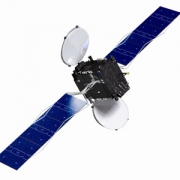Whose ICT Stats Should We Trust?
While reading a news article in Reuters Africa a couple of weeks ago, I came across some ICT statistics that caught my attention. Funke Opeke, Chief Executive of the Main One Cable Company, last week estimated that Internet penetration would triple by 2013 in Nigeria, from the current 11% to 35-40%.
What surprised me, though, was not Opeke’s claim that Internet penetration would triple, but instead the statistics themselves. I knew that the ITU reported Internet penetration at 28.4% in Nigeria, quite different from Opeke’s 11% estimate. I contacted the author of the article, who forwarded me an excel document from Mrs. Opeke. The excel document had Internet penetration estimates in Nigeria from nine different hyperlinked sources such as the ITU, Business Monitor International, and the World Bank, with estimates ranging from 7-40%. Opeke used the 11% estimate in her public statement on increasing Internet access in Nigeria, she explained, to be conservative in announcing Main One’s plans.
However, I followed the hyperlinks to verify the statistics and found that they were in fact quite incorrect. Most of the websites deferred to the ITU’s 28.4%. Some of the Internet penetration statistics on the excel document were incorrectly entered, or gathered from the wrong year, or even from a different country, not Nigeria. The actual statistics reported in various reports on the Internet almost always come back to the ITU.
The root of the problem is that the news agencies are reporting the goals of the telecommunications companies as objective statistical projections. The motivation for the companies, or government ICT ministries, to exaggerate their projections and manipulate data is inherent. Instead of reporting private businesses’ “predictions” as facts, journalists should verify businesses’ claims with data from the ITU.
Further examples of inaccurate data reporting are widely available. Cisco Systems announced earlier this month that global Internet traffic will quadruple by 2015, based on their predictions. The headline read simply, “Internet traffic set to take off.” Recently, Nigerian journalists published an article entitled “Broadband is the future of our economy,” based solely on the personal comments of the CEO of Nigerian company Geoid Telecommunications:
“I quite agree that broadband is the future of Nigeria’s economy. I think it is obvious given the increased penetration of wireless devices in Nigeria. …a greater number of Nigerians now have wireless devices such as the BlackBerry, i-Pads and so on.”
One critic of Nigerian telecommunications, Nmachi Jidemna, highlights the low amount technological development in Nigeria in comparison to South Africa and Kenya. The success of M-PESA, Ushahidi, MXit, and Umbono, among other applications in Kenya and South Africa, are attracting foreign attention and, more importantly, foreign investment. While in Nigeria Internet penetration is relatively high, technological development is comparatively low.
Since the Nigerian telecommunications industry has not attracted as many investors from the private sector or created revolutionary applications, the Nigerian government has created a local technological hub mimicking Silicon Valley in the United States, the Abuja Technology Village. Since its creation in 2009, though, there have been few positive outcomes of the initiative, leaving technological development at a standstill in Nigeria.
Yet, the Internet can be a powerful tool for development. Its potential as a tool to facilitate development, though, should not be over-stated. Claims that demand for Internet access is “insatiable” or that access will triple within two years, should be reported more cautiously. News agencies should continue to interview telecommunication companies, but should paint a more objective picture of reality.









































